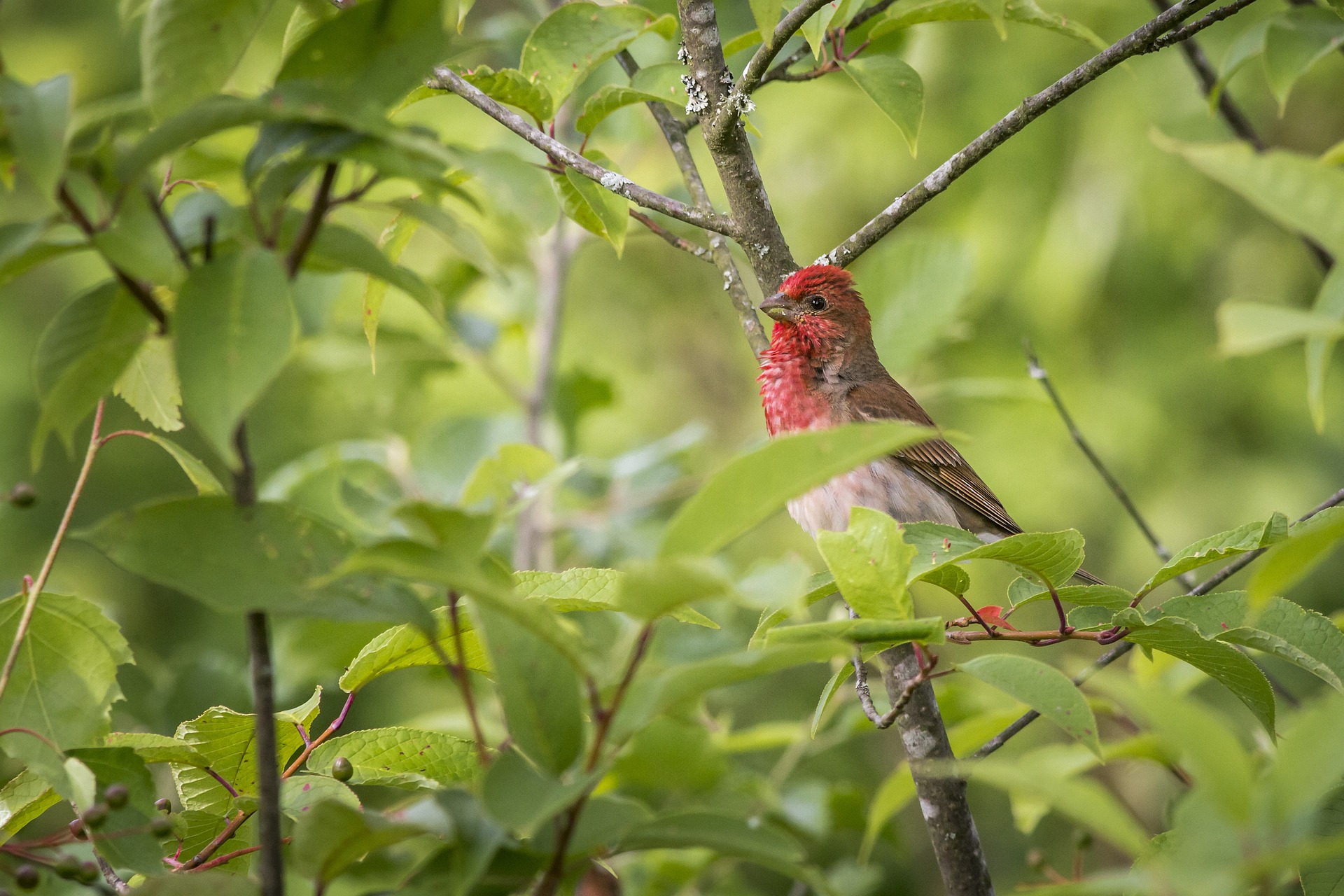The Common Rosefinch (Carpodacus erythrinus) is a small passerine bird belonging to the finch family, Fringillidae. Here are some key features and characteristics of the Common Rosefinch:
- Appearance: Male Common Rosefinches are striking birds with a bright red plumage on their head, breast, and back, while their wings and tail are a darker brown. The intensity of the red coloration can vary among individuals and depending on age and breeding condition. Females and juveniles are more subdued in coloration, with streaked brown plumage overall.
- Distribution: The Common Rosefinch breeds across northern Eurasia, including Europe and Asia, with its range extending from Scandinavia in the west to eastern Siberia and Japan in the east. During the breeding season, it inhabits a variety of habitats, including open woodlands, shrublands, meadows, and mountainous areas.
- Migration: Common Rosefinches are migratory birds, with populations from northern Europe and Asia migrating southward to wintering grounds in southern Europe, the Middle East, and South Asia. They form large flocks during migration and may be seen in gardens, parks, and agricultural areas.
- Diet: Common Rosefinches primarily feed on seeds, buds, and fruits, including those of various plants and trees. They may also consume small insects and invertebrates, particularly during the breeding season when protein-rich food is needed for raising young.
- Behavior: Common Rosefinches are often seen perched in trees or shrubs, where they forage for food and sing from elevated positions. They have a melodious song consisting of varied phrases and trills, which they use for territorial defense and attracting mates. They are generally shy and elusive birds, particularly during the breeding season.
- Breeding: During the breeding season, which typically occurs from May to July, male Common Rosefinches establish territories and sing to attract females. They build cup-shaped nests in shrubs or low trees using twigs, grasses, and other plant materials. The female lays a clutch of eggs, usually numbering 4 to 6 eggs, which she incubates for about 12 to 14 days. Both parents participate in feeding and caring for the young after they hatch.
- Conservation: Common Rosefinch populations are generally stable and not considered threatened at the global level. However, they may face local threats from habitat loss, changes in land use, and pesticide use in agricultural areas.
Overall, the Common Rosefinch is a beautiful and melodious bird species with a wide distribution across Eurasia, admired for its vibrant plumage and cheerful song.
Visited 222 times, 18 visit(s) today
Views: 393
Subscribe to the newsletter:
